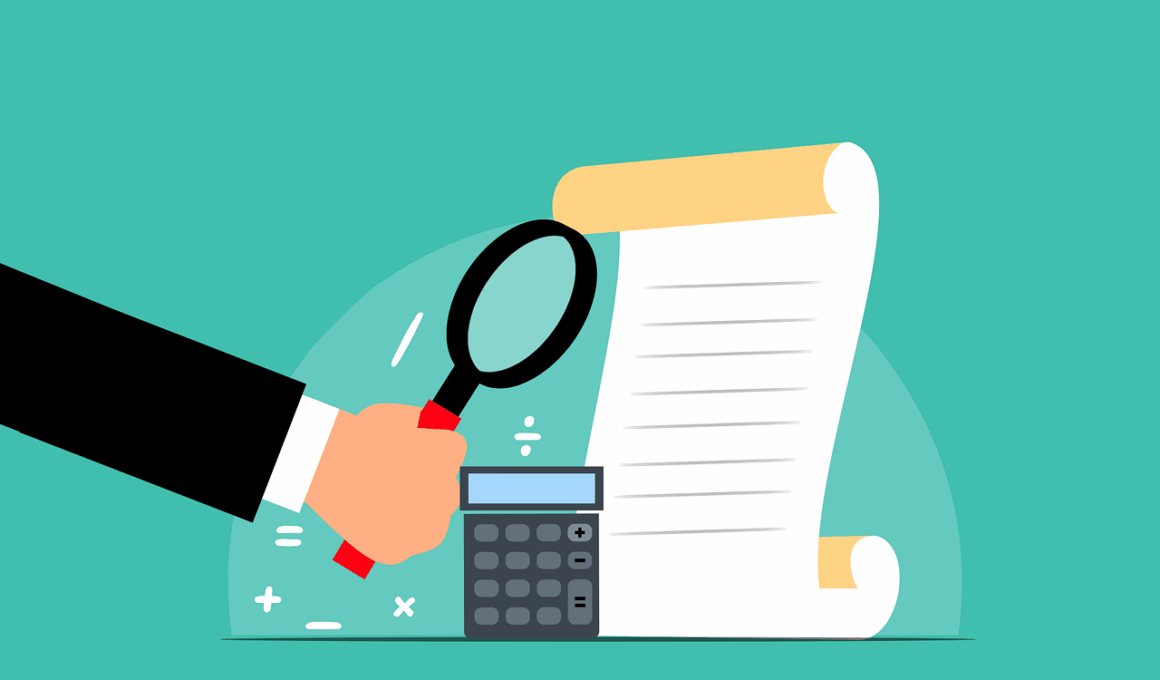The Importance of Independence in Auditing
Independence in auditing is a fundamental principle that ensures objectivity and fairness in the audit process. It is vital for maintaining the integrity of financial statements and fostering trust among stakeholders. Auditors must operate without influences that could compromise their judgment, making independence essential for credible financial reporting. Independent auditors provide assurance that financial statements are free from material misstatements, promoting an environment of transparency. This trust underpins business relationships and capital markets. A lack of independence can lead to conflicts of interest, thereby jeopardizing the quality of the audit results. Audit Independence relies on both a mental attitude of the auditor and adherence to ethical guidelines established by governing bodies. To uphold independence, auditors must refrain from relationships that could impair their objectivity, such as having financial interests in the client companies they are auditing. Regular training and adherence to industry standards help in reinforcing the importance of independence within auditing practices. Organizations should also have measures in place to detect and manage potential threats to auditor independence. Ultimately, independence is a linchpin of effective auditing that safeguards the interests of investors and the public.
Enhancing auditor independence necessitates an evaluation of existing policies and practices across the auditing profession. Auditors must also remain vigilant against the subtle pressures that may arise from clients or even external parties. It is crucial for auditors to have clear guidelines outlining permissible interactions with clients, thereby maintaining an unwavering commitment to independence. The relationship between auditors and clients should ideally be strictly professional, ensuring that personal connections do not affect the quality of the audit. Transparency in the auditor-client relationship helps in mitigating risks associated with compromised independence. Additionally, firms should conduct regular assessments of potential independence threats, taking preemptive actions to avoid situations that could impair an auditor’s objectivity. Internal controls and ethics training can empower auditors to make the right decisions in complex situations, further bolstering independence in their work. In recent years, the scrutiny of auditor independence has increased, prompting regulatory bodies to implement stricter regulations around audit practices. Adopting a proactive approach toward independence and ethical behavior not only enhances audit quality but also reinforces public confidence in the auditing profession.
Legal and Ethical Dimensions
Auditing regulations outline strict guidelines related to independence, emphasizing the legal and ethical dimensions of the auditor’s role. Various laws, including Sarbanes-Oxley and International Standards on Auditing (ISA), dictate requirements concerning auditor independence. These rules aim to protect the public interest by ensuring auditors remain unbiased and independent of their clients. Ethical guidelines established by professional organizations, such as the American Institute of Certified Public Accountants (AICPA), also serve to reinforce the importance of independence. Such regulations delineate prohibited relationships between auditors and clients, helping to maintain the sufficiency of auditor independence. Independence is particularly relevant in evaluating high-risk entities where potential conflicts can pose significant threats. Auditors must be aware of their responsibilities not only to clients but also to the broader community and economy they serve. This duty extends beyond mere compliance with legal requirements; it reflects a commitment to uphold standards of professionalism and integrity. By embracing these ethical mandates, auditors can preserve public confidence, ensuring audits are conducted in a way that meets both financial and ethical accountability.
Furthermore, understanding the implications for breaching independence requirements serves as a crucial reminder of the importance of ethical conduct in auditing. Violating independence can have severe consequences, including loss of license, reputational damage, and legal ramifications. It jeopardizes the credibility of the auditor as well as the financial integrity of the audited company. Instances of compromised independence often lead to scandal and investigations, which can result in significant financial penalties for both auditors and clients. Such breaches can also cause a cascading effect, diminishing public trust in the auditing profession overall. Therefore, it is imperative for auditors to foster a culture of independence through ongoing training and ethical awareness initiatives within their firms. Regular discussions surrounding independence during team meetings can help reinforce its importance. Audit firms should also establish a robust compliance mechanism that monitors adherence to independence regulations. Utilizing technology to track relationships and engagements can further enhance monitoring capabilities. In doing so, the profession can work collectively toward maintaining high standards of independence, ultimately benefiting all stakeholders concerned with integrity in financial reporting.”},{
The Role of Corporate Governance
Corporate governance plays a significant role in auditor independence, as it encompasses the structures, processes, and practices that ensure accountability within an organization. Strong corporate governance mechanisms set the tone for ethical behavior and decision-making within companies, thereby enhancing the overall effectiveness of the audit process. It is essential for boards of directors to recognize the boundaries between management and independent auditors to prevent undue influences on audit outcomes. Having an independent audit committee can further bolster this relationship, ensuring that auditors communicate directly with board members apart from management. This type of oversight allows for more objective evaluations of auditor performance and independence. Moreover, regular evaluations of the effectiveness of the audit relationship should be conducted, helping to identify any areas where independence may be compromised. By fostering an environment that values transparency and accountability, corporate governance can significantly enhance auditor independence. Furthermore, engaging stakeholders in discussions about independent audit practices can promote a deeper understanding of the audit function’s importance. Ultimately, effective corporate governance serves as a foundation for ensuring that audits are conducted with the highest standards of independence and integrity.
In conclusion, independence in auditing is not merely a regulatory requirement; it is a cornerstone of quality and credibility in financial reporting. Maintaining independence supports not only reliable financial statements but also promotes stakeholders’ trust in the audit process. The mandates and guidelines surrounding auditor independence serve to protect the integrity of the profession, underscoring the ethical and legal obligations auditors must uphold. Constant vigilance and rigorous adherence to independence principles are necessary for auditors to retain objectivity and effectively serve the public interest. Addressing potential threats to auditor independence requires a proactive approach, including training, compliance monitoring, and strict adherence to ethical standards. Through collaborative efforts among auditors, corporate governance frameworks, and regulatory bodies, the auditing profession can continue to uphold its commitment to independence. This unwavering dedication benefits the entire economy, ensuring that audits are executed with impartiality. In a rapidly evolving business environment, the principles of independence in auditing must remain paramount. By fostering an environment where independence is prioritized, all stakeholders can contribute to an enhanced level of trust in financial statements and the overall audit function.





